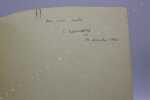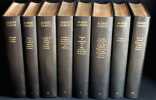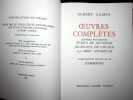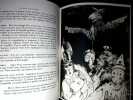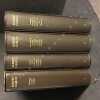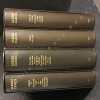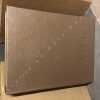1721 books for « le camus e »Edit
-
Type
Book (1702)
Magazine (2)
Music sheets (16)
Posters (1)
-
Latest
Last 3 days (3)
Last month (29)
Last week (3)
-
Language
French (1719)
Russian (2)
-
Century
16th (1)
17th (10)
18th (27)
19th (62)
20th (842)
21st (128)
-
Countries
Belgium (92)
Canada (12)
Côte d'Ivoire (2)
Denmark (10)
France (1433)
Germany (7)
Greece (1)
Italy (1)
Netherlands (1)
Switzerland (160)
United States of America (2)
-
Syndicate
ALAC (10)
CLAM (9)
ILAB (723)
NVVA (12)
SLACES (11)
SLAM (673)
SNCAO (6)
Topics
- Algeria (12)
- Alps (5)
- Archaeology (5)
- Architecture (7)
- Army (9)
- Autographs (13)
- Bibliography (6)
- Bibliophilism (5)
- Biography (12)
- Botany (5)
- Brazil (3)
- Camus albert (1567)
- Catholicism (6)
- Children’s books (17)
- Christ (the) (10)
- Christianity (6)
- Christmas (4)
- Cocteau jean (5)
- Comic strip (5)
- Death (4)
- Dedication (5)
- Demonology (6)
- Education (7)
- Education - morals (5)
- Engraving (books about) (21)
- Essays (11)
- Ethnology (4)
- Europe (4)
- Faulkner william (7)
- Fine arts (6)
- First edition (84)
- French literature (27)
- Gallimard (25)
- Gard (13)
- Geography (6)
- Germanic languages (5)
- Guide books (4)
- Hackney (5)
- History (28)
- Iconography (4)
- Illustrated books (6)
- Koestler arthur (5)
- Law (8)
- Literary criticism (6)
- Literature (16)
- Lope de vega (4)
- Malraux andré (6)
- Manuscripts (9)
- Maria theresa (14)
- Mathematics (5)
- Medicine (12)
- Military arts (15)
- Mountaineering climbing (5)
- Newspaper (4)
- Newspapers press (13)
- Paris (16)
- Philosophy (32)
- Photography (27)
- Plague (5)
- Pléiade & album de la (41)
- Poetry (18)
- Poitou (5)
- Policy (10)
- Ponge francis (4)
- Prassinos (9)
- Psychology (5)
- Regionalism (14)
- Religions (14)
- Review (16)
- Reviews (9)
- Revolution 1789 (4)
- Sartre jean paul (5)
- Sciences (8)
- Sciences & technique (4)
- Scores (17)
- Short stories (8)
- Songs (16)
- Speeches (4)
- Sun (3)
- Sundials (3)
- Surrealism (5)
- Tales (4)
- Theatre (56)
- Theology (7)
- Travel (5)
- Various (5)
- War (5)
- Wilde oscar (6)
- Witchcraft (11)
L'Été. Les essais LXVIII. - [PRESENTATION-COPY WITH A MOST SPLENDID PROVENANCE]
Paris, Gallimard, 1954. Uncut in the original printed wrappers. Excellent copy.
First edition, Service de presse-copy, i.e. review-copy (""S.P"" to bottom of title-page and to verso of back wrapper), with an excellent presentation-inscription, of Camus' magnificent and highly influential collection of essays entitled ""Summer"". The copy is inscribed to Camus' close friend and ally in numerous respects, Jean Paulhan: ""a Jean Paulhan/ en affectueuse pensée/ Albert Camus"" on half-title. The famous French writer, literary critic and publisher Jean Paulhan (1884-1964) shared many things with Camus, with whom he grew very close. Not only did he participate actively in the publication of Camus' first books by Gallimard, was one of the first to see the true value of Camus' ""The Stranger"", he was also a confidante of Camus, who considered Paulhan one of the main reasons that he became a proper author. In a letter to Paulhan dated September 17, 1952, at the moment of break with Sartre, Camus writes: ""Ever since I (thanks to you) became what is called an author, I have not ceased to be astonished by my brethren. Sometimes, it is true, in the sense of admiration. Today it is in another sense."" (Depuis que je suis devenu (en peu grâce à vous) ce qu'on apelle écrivain, je n'ai pas cessé d'être étonné par mes confrères. Parfois dans le sens de l'admiration, il est vrai. Aujourd'hui c'est dans un autre sens.).Paulhan was an early and active member of the French Resistance, director of the literary magazine Nouvelle Revue Française (NRF) (from 1925 to 1940 and again from 1946 to 1968) and a great translator of Malagasy poetry, which attracted the interest of the likes of Guillaume Apollinaire and Paul Éluard. He also wrote numerous works of literary criticism, ""The Flowers of Tarbes, or Terror in Literature"" (1941) probably being the most famous, and he wrote several autobiographical short stories. After the war, Paulhan he founded ""Cahiers de la Pléiade"", and in 1953 he re-launched NRF.Interestingly, especially in connection with Camus' famous essays in ""L'été"", which are devoted entirely to his beloved Algiers, Paulhan was loudly against independence for Algeria. He caused great controversy by opposing independence and supporting the French military during the Algerian War. This not only caused public problems for him, it also cost him on the personal front, as for instance Maurice Blanchot denounced him. The essays in ""L'été"" are devoted to Algiers and represent a very personal side of Camus, who provides a marvelous poetic and humorous picture of the provincial simplicities of Oran and Algiers. For many Camus-devotees, ""L'Été"" constitutes one of the most beloved works, as it gives the feel of a certain intimacy with the author that few of his other works does. ""In ""Return to Tipasa"", perhaps the most confessional essay in ""Summer"", which dates from a long trip to Algeria in December 1952, Camus issues his now famous testimony of survival - ""In the depths of winter, I finally learned that within me lay an invincible summer"" (Hawes: Camus, A Romance, 2009, pp. 181-82).
Le Chevalier d'Olmedo. Comédie dramatique en trois journées. Texte français d'Albert Camus
Exemplaire René Char avec envoi Paris, Gallimard, (17 juin) 1957. 1 vol. (110 x 170 mm) de 203 p. et [2] f. Broché. Édition originale de l'adaptation d'Albert Camus. Un des exemplaires numérotés sur alfa. Envoi signé : «En ce temps-là, cher René, beaucoup d'hommes savaient que l'amitié et l'honneur étaient les deux noms d'une même fidélité ; aujourd'hui, dans l'abaissement où nous sommes, ceux qui comme vous le savent encore, comment nous en passerions-nous ? A. C. 1957».
Cette dédicace, au coeur de l'année du Nobel, résume évidemment l'amitié, mais surtout l'alliance d'éthique et d'esthétique qui gouverne la période : Camus dramaturge, metteur en scène et traducteur, ancre son travail dans une fidélité d'amitié, d'histoire et de théâtre. Dès ses débuts algérois, Camus rêve de plein air, d'une scène populaire où la parole « marche vers sa fin » ; l'Espagne l'accompagne très tôt (de Révolte dans les Asturies à La Célestine montée avec l'Équipe), avant qu'une première collaboration décisive n'ait lieu en 1953 : Marcel Herrand lui commande l'adaptation de Calderón, La Dévotion à la croix, coup d'envoi d'un cycle hispanique qui culminera avec Lope de Vega en 1957 et ce Chevalier d'Olmedo. À Angers, Camus est la figure centrale de la 6e édition du Festival (21-30 juin 1957) : il y remanie et met en scène Caligula pour la première fois et dirige sa propre adaptation du Chevalier d'Olmedo. La « première » demeure, de manière légendaire, datée au 21 juin mais un orage d'une violence rare arrache décors et inonde plateau et gradins au moment d'allumer les remparts : la représentation est annulée, si bien que le festival s'ouvrira in fine le 22 par Caligula, et la vraie première d'Olmedo a lieu le 23 juin (puis les 26 et 29). Sans en « oublier le côté populaire », écrit-il en marge de ses brouillons sur la pièce. Car Olmedo vient nourrir le projet d'une tragédie moderne où « un seul sentiment marche sans arrêt vers sa fin », et préfigure le répertoire que Camus, à la fin de 1959, cerne pour la direction de théâtre qu'on s'apprête à lui confier : Lope (encore), Calderón, Tirso de Molina... Robert Kemp, dans sa critique de la pièce donnée dans Le Monde, saluera le rythme, la fraîcheur et l'innocence du texte de Lope servis par « la plume solide, aiguë » de Camus - la même qui vient d'écrire, sur la peine de mort, des pages fortes et saisissantes, qui ne convaincront pas les mainteneurs de la guillotine, mais exalteront les abolitionnistes. Rien d'anecdotique : Camus note que le dernier mot de la pièce - teatro - signifie aussi échafaud ; les tréteaux sont un gibet. « Il vaudrait mieux que l'exécution fût publique. Le comédien qui est en chaque homme pourrait alors venir au secours de l'animal épouvanté et l'aider à faire figure, même à ses propres yeux », écrit-il dans Réflexions sur la guillotine, dont la rédaction est strictement contemporaine. Ainsi, la fin de l'adaptation d'Angers n'est pas sans rappeler un motif qui parcourt l'oeuvre entière de Camus, du dernier voeu de Meursault, au pied de l'échafaud dans L'Étranger, jusqu'au rêve d'exécution publique dont parle Clamence à la fin de La Chute, publiée l'année précédente. Magnifique provenance. Cet envoi est l'une des 43 connus à René Char, l'ami, le frère : cette dédicace est, de loin, la plus longue des 43 référencées.
L'Été. Les essais LXVIII. - [PRESENTATION-COPY]
Paris, Gallimard, 1954. Uncut in the original printed wrappers. A very nice copy housed in a beautiful brown half morocco box with gilt lettering to spine and gilt super ex-libris to front board.
First edition, Service de presse-copy, i.e. review-copy (""S.P"" to bottom of title-page and to verso of back wrapper), of Camus' magnificent and highly influential collection of essays entitled ""Summer"", inscribed to the famous critic of literature and drama, the writer Guy Dumur (1921-1991): ""à Guy Dumur/ l'une des/ [ÉTÉ]s [ÉTÉ being printed an L' crossed out in front, with s added in Camus' hand]/ son vieil et fidele ami/ Albert Camus"" on half-title.The younger Guy Dumur was a close friend of Camus, who hired him to work on ""Combat"" with him. It is reported that he had a great talent for discovering new talent. Since childhood, he was extremely passionate about the theatre and came to work with all the great dramatic figures in Paris at the time. He is also famous for a number of well respected novels. The essays in ""L'été"" are devoted to Algiers and represent a very personal side of Camus, who provides a marvelous poetic and humorous picture of the provincial simplicities of Oran and Algiers. For many Camus-devotees, ""L'Été"" constitutes one of the most beloved works, as it gives the feel of a certain intimacy with the author that few of his other works does. ""In ""Return to Tipasa"", perhaps the most confessional essay in ""Summer"", which dates from a long trip to Algeria in December 1952, Camus issues his now famous testimony of survival - ""In the depths of winter, I finally learned that within me lay an invincible summer"" (Hawes: Camus, A Romance, 2009, pp. 181-82).
Camus, une passion algérienne.
S.l., Koutoubia, (2010). Un vol. au format in-8 étroit (228 x 138 mm) de 189 pp., broché, sous couverture à rabats rempliés.
L'ouvrage s'agrémente de planches photographiques hors-texte. ''Cinquante ans après la mort d'Albert Camus, que reste-t-il de son oeuvre ? Par l'itinéraire qu'il nous propose entre l'Algérie d'hier et celle d'aujourd'hui, sur les lieux-mêmes où Camus se confronta à la condition humaine et aux drames de l'histoire, Stéphane Babey montre la force et la pertinence d'une pensée trop longtemps vouée à la vindicte et à l'incompréhension. D'Annaba où le destin de Camus rencontre celui de saint Augustin à Alger la blanche en passant par Oran la pestiférée, ce livre est un voyage au coeur de la passion algérienne qui anima Camus jusque dans l'exil. Sur les pas d'Albert Camus par le texte et par l'image.'' Excellente condition.
Lettre autographe signée d'Albert Camus adressée à Madame Quentin
mardi 25 août | 13.4 x 20.9 cm | Une feuille
Lettre autographe signée d'Albert Camus adressée à « Madame Quentin ». Une page sur un feuillet rédigé à l'encre noire, à en-tête de la Nrf, accompagnée de son enveloppe portant l'adresse autographe de sa destinataire. Trace de pli horizontal inhérente à la mise sous pli de la lettre. « Je serai à Paris lundi ou mardi au plus tard (c'est donc le 31 ou le 1). Pouvez-vous demander à Madame Pinker, dès réception de cette lettre, de ne plus faire suivre mon courrier. J'espère que vous avez pu vous reposer un peu pendant le mois d'août et vous envoie mes biens fidèles pensées ». Lorsqu'il habite sa maison à Lourmarin, c'est à sa femme de ménage, Madame Quentin, qu'Albert Camus s'adresse pour les questions logistiques liées à son pied-à-terre parisien, au 4 rue de Chanaleilles, voisin de celui de René Char. L'écrivain réalise plusieurs allers et retours entre ses deux résidences de 1958 jusqu'au 4 janvier 1960, date à laquelle il trouvera tragiquement la mort dans un accident de voiture à Villeblevin dans l'Yonne. L'une de ses ultimes lettres datée du 23 décembre 1959 sera adressée à cette « chère Madame Quentin », dans laquelle, en plus d'une généreuse étrenne de fin d'année, Camus précisera la date de son retour à Paris, comme il le fait dans cette lettre. On joint un télégramme adressé à nouveau à Mme « Quentin 86 Rue de Varennes », en date du « 5-59 ». Les lettres autographes signées d'Albert Camus sont aujourd'hui très recherchées. Celle-ci témoigne du langage prévenant qu'emploie l'écrivain envers Madame Quentin, qui exerce la même profession qu'occupait sa mère. - Photographies et détails sur www.Edition-Originale.com -


Phone number : 01 56 08 08 85
L'Etat de siège [Camus]
0 En feuilles
Photo prise lors de la représentation de "L'Etat de siège" de Camus en 1948, au théâtre Marigny. On y voit Camus, Jean-Louis Barrault, le metteur en scène, Arthur Honneger, Maria Casarès, Madeleine Renaud, Pierre Brasseur,Jean Desailly, Pierre Brasseur, Gabriel Cattand, et Balthus qui avait fait les décors. Photographie originale, tirage sur papier baryté, 21 x 20,2 cm. Tampon Lipnitzki - Viollet au dos. Très bon 0
L'Été.
Exemplaire Robert Chatté avec envoi signé Paris, Gallimard, coll. «Les Essais», (février) 1954. 1 vol. (120 x 185 mm) de 188 p. et [2] f. Broché, sous chemise et étui. Edition originale. Un des 175 exemplaires sur vélin pur fil - celui-ci un des 5 hors commerce (J). Envoi signé : « à Robert Chat[té], par 40° de température. A.C. ».
Les huit récits qui composent L'Été, à l'exception du « Minotaure », publié seul en 1950, sont inédits. Tous « se rattachent naturellement à Noces par une sorte de fil d'or », celui du lyrisme, de la prose poétique et de la pensée méditerranéenne, célébrant Alger, Oran puis Tipasa, qu'il avait chanté quinze ans plus tôt dans Noces comme un lieu « habité par les dieux ». Camus, sept années après la parution de La Peste, revient à l'essentiel, ses essentiels : la Méditerranée, avec « son tragique solaire qui n'est pas celui des brumes » ; la lumière, « si éclatante qu'elle en devient noire et blanche » ; la mer, dont il se tient « au plus près » ; l'Algérie, sa « vraie patrie ». Cet exemplaire est celui de Robert Chatté, l'une des grandes figures de la librairie clandestine. Jean-Jacques Pauvert l'évoque dans ses Souvenirs comme « le mystérieux libraire de Montmartre, (...) grand, mince, très bien élevé, avec des oreilles décollées éton-nantes, (qui) exerçait en appartement et prenait un grand luxe de précautions et avait ses entrées chez Gallimard, chez qui il avait débuté comme simple commis. Il n'ouvrait sa porte que si l'on usait d'un certain signal. Il avait fait imprimer aussi l'édition originale de Madame Edwarda de Bataille en 1941 ». Sa relation avec Camus fut précoce et constante, jusqu'à son décès le 8 septembre 1957, que l'écrivain note dans ses Carnets : « Mort de Robert Chatté. Seul, à l'hôpital de Villejuif. » (III, p. 198). Son ami Pascal Pia s'occupera de la succession et de l'inventaire de son appartement. Parisien tout le premier semestre 1954, Camus offre vraisemblablement à Chatté son ouvrage dès sa parution, mi-février. Les 40° annoncés sont davantage un écho ironique aux textes de L'Été qu'à la situation météorologique en France : le fameux hiver 1954 est l'un des plus froids du siècle dernier, avec un froid ressenti de près de -40° ! Camus passera tout l'été, au frais, en Normandie, chez les Gallimard, à Sorel-Moussel. Cet exemplaire a figuré à l'exposition du centenaire, « Albert Camus de Tipasa à Lourmarin » (n° 155, reproduit).
Richard Maguet (1896-1940).
Paris, Galerie André Maurice, (20 avril) 1949. 1 vol. (145 x 225 mm) de 1, [6] et 1 f. Broché. Édition originale. Un des 300 premiers exemplaires sur vélin Marais (n° 47), bien complet de la planche hors texte.
C'est par Jean Grenier, qui présenta Camus à Maguet, et le peintre Marcel Damboise, dont il avait fait la connaissance en Algérie dans les années 30, que Camus s'intéressa aux peintures de Richard Maguet. Les deux peintres résidaient à la villa d'artistes d'Abd-el-Tif, alors que Camus était étudiant en philosophie, vers 1933, et avaient exposé ensemble. Camus avait longuement parlé de ce peintre dans une chronique d'Alger étudiant en 1942. Ce représentant de l'Ecole de Paris, fauché dans un bombardement le 16 juin 1940, à Sully-sur-Loire, sera honoré dès le lendemain par Jean Grenier dans un bel article paru dans Fontaine (n°15, septembre 1941), repris dans la première monographie qui lui sera consacrée, en 1941 toujours, à la Galerie Louis Reynaud, préfacée par Jean Alazard, professeur d'histoire de l'art et fondateur du Musée des beaux-arts d'Alger. Cette seconde exposition fait la part belle au texte de Camus : hormis une illustration - volante - de Maguet, le catalogue n'est constitué que de ce texte. L'ensemble est imprimé à 300 exemplaires, par Mourlot.
Richard Maguet 1896-1940
Galerie André Maurice, 1949, broch. in-8 (14 x 22,5), tirage à 300 exemplaires numérotés sur vélin du Marais (N° 132), non paginé (8 p.), une planche volante reproduisant un tableau du peintre, couverture à rabats, avec son carton d'invitation, bon état.
Texte inédit d'Albert Camus écrit à l'occasion de l'exposition rétrospective de Richard Maguet mort pour la France en 1940. C'est par Jean Grenier, qui présenta Camus à Maguet, et le peintre Marcel Damboise, dont il avait fait la connaissance en Algérie dans les années 30, que Camus s'intéressa aux peintures de Richard Maguet. Les deux peintres résidaient à la villa d'artistes d'Abd-el-Tif, alors que Camus était étudiant en philosophie, vers 1933, et avaient exposés ensemble. Camus avait longuement parlé de ce peintre dans une chronique d'Alger étudiant en 1942. Ce représentant de l'Ecole de Paris, fauché dans un bombardement le 16 juin 1940, à Sully-sur-Loire, sera honoré dès le lendemain par Jean Grenier dans un bel article paru dans Fontaine (n°15, septembre 1941)
L'Envers et l'endroit.
Paris, Jean-Jacques Pauvert, 1956 In-8 (225 x 142 mm), 108 pp., 2 ff. n. ch. Broché, couverture imprimée de l’éditeur, non rogné.
Seconde édition et la première en métropole, en partie originale, et première édition illustrée. Composée de cinq essais: L'Ironie, Entre oui et non, La Mort dans l'âme, Amour de vivre et L'Envers et l'endroit, cette première oeuvre d'Albert Camus fut publiée pour la première fois en 1937, en Algérie, et tirée à un très petit nombre. Il justifie sa réimpression, qu'il avait toujours refusée, dans une importante préface inédite de 23 pages. Il y explique combien cette œuvre lui est chère. “Pour moi, je sais que ma source est dans L'Envers et l'endroit, dans ce monde de pauvreté et de lumière où j'ai longtemps vécu et dont le souvenir me préserve encore des deux dangers contraires, qui menacent tout artiste, le ressentiment et la satisfaction”. Précieuse édition tirée à seulement 100 exemplaires. Elle est illustrée d'une pointe sèche originale de Hans Bellmer représentant le portrait d'Albert Camus. Peintre, photographe, graveur, dessinateur et sculpteur, Hans Bellmer (Kattowitz, 1902-Paris, 1975) fut un des artistes majeurs du mouvement surréaliste. Envoi autographe d'Albert Camus à Jean-Arthur Varoquaux. Fils d'Arthur Varoquaux (1879-1952), Juste parmi les nations, qui avait bien connu Albert Camus et de nombreux autres écrivains, Jean-Arthur Varoquaux (Paris, 1918-Neuilly sur Seine, 2017) fit Polytechnique et l'Ecole des Mines de Paris. Directeur des Hauts-Fourneaux et Fonderies de la Halbergerhütte GmbH en Allemagne, il en devint directeur général en 1958. Jean-Arthur Varoquaux fut en même temps professeur à l'École Nationale Supérieure des Mines de Nancy de 1942 à 1970, puis président de cette École de 1971 à 1980. Bel exemplaire avec envoi.
La Chute.
Service de presse avec envoi Paris, Gallimard, (mai) 1956. 1 vol. (120 x 190 mm) de 169 p., 1 et [2] f. Broché, non coupé. Édition originale. Un des exemplaires poinçonnés du service de presse. Envoi signé : «à Monsieur Guy Vinatrel, en sincère hommage, Albert Camus.»
En 1956, outre ses activités journalistiques, Albert Camus écrit pour le théâtre et multiplie les nouvelles, qu'il rédige entre 1954 et 1956. Il les destine à L'Exil et le Royaume, qui paraîtra l'année suivante. Ce qui sera sont dernier roman publié naît directement d'une des nouvelles qu'il destine à son recueil : un texte-clef, isolé puis développé, qui récit prend la forme d’une confession à Amsterdam où — le « juge-pénitent » Jean-Baptiste Clamence y reconstruit, dans un monologue d’une précision implacable, l’enchaînement intérieur d’une faute et d’une lucidité. Le titre, proposé par Roger Martin du Gard, s’impose au moment des dernières épreuves et le succès de librairie est immédiat. Camus refuse l’identification biographique que la critique avance alors : « Mon seul point commun avec Jean-Baptiste Clamence — auquel on s’obstine à vouloir m’identifier — serait son manque d’imagination », déclare-t-il. L'exemplaire est offert à Guy Vinatrel (pseudonyme de Gilbert Pradet) : cet essayiste et journaliste, est correspondant à Moscou avant-guerre, avant de revendiquer ensuite un engagement dans la Résistance puis se fixer dans une posture anti-totalitaire et anti-communiste très tôt affirmée. Maçon actif, il anime l’Association fraternelle des journalistes et Les Lettres mensuelles et signe, sous son nom de plume, dans Dimanche-Matin, Les Écrits de Paris et Juvénal de nombreux articles dénonçant les camps soviétiques et la défense d’une social-démocratie de responsabilité — recoupe notamment les positions de Camus sur l’URSS, la peine capitale et la liberté de l’esprit.
La Chute.
Exemplaire sur pur fil.Tel que paru. Paris, Gallimard, (mai) 1956. 1 vol. (120 x 190 mm) de 169 p., [1] et 2 f. Broché. Édition originale. Un des 235 exemplaires sur pur fil (n° 89).
En 1956, outre ses activités journalistiques, Albert Camus écrit pour le théâtre et multiplie les nouvelles, qu'il rédige entre 1954 et 1956. Il les destine à L'Exil et le Royaume, qui paraîtra l'année suivante. « Un seul thème pourtant, celui de l'exil, depuis le monologue intérieur jusqu'au récit réaliste. Les six récits ont d'ailleurs été écrits à la suite, bien qu'ils aient été repris et travaillés séparément (...). L'exil, à sa manière, nous en montre les chemins, à la seule condition que nous sachions y refuser en même temps la servitude et la possession. » La Chute - dont on ignore le titre primitif - y figure à l'origine, avant d'être écarte du recueil à venir : Camus en développe le texte jusqu'à en faire le roman que l'on sait. Sous un titre proposé par Roger Martin du Gard, La Chute est mis en vente le 16 mai et connaît un immense succès de librairie. Ceux qui prédisaient ironiquement « la chute de Camus » font silence. La plupart ont vu dans ce texte une sorte d'autobiographie, ainsi que ses contemporains tentent de lui faire admettre. Camus leur répondra invariablement par la négative : « Mon seul point commun avec Jean-Baptiste Clamence - auquel on s'obstine à vouloir m'identifier - serait son manque d'imagination » déclare-t-il dans Le Monde. Bel exemplaire.
L'Intelligence et l'échafaud.
Un des 11 exemplaires de tête. Bruxelles, Dynamo, coll. «Brimborions», 14 janvier 1960. 1 vol. (120 x 190 mm) de 10 p. et 1 f. Broché. Édition originale. Un des onze premiers exemplaires sur hollande (n° 5).
C'est dans la revue Confluences, dans son numéro de juillet 1943, que paraît L'intelligence et l'échafaud. Les personnages « sont de curieux héros qui périssent tous de sentiments et vont chercher des maladies mortelles dans des passions contrariées », dit Camus, selon une tradition du roman français qui est d'aller droit au but, selon le prototype de La Princesse de Clèves. De son auteur, Mme de Lafayette, à Benjamin Constant et jusqu'à Proust, le texte est ici tout entier fondé sur l'admiration de l'art classique : Camus y reviendra deux ans plus, tard lorsqu'il préfacera les oeuvres de Chamfort ; il donnera également plusieurs résonances à ce texte dans les éditoriaux de Combat de l'année 1944. Celui du 12 octobre 1944 reprendra par exemple la formule de Goethe présente ici : «Mieux vaut une injustice qu'un désordre». Cette plaquette est achevée d'imprimer le 14 janvier 1960, soit 10 jours après le décès accidentel de Camus, sur les route de Bourgogne. Tirée à seulement 51 exemplaires, elle paraît simultanément à l'autre hommage rendu par Pierre Aelberts pour sa collection Brimborions, savoir le Albert Camus de Jean-Paul Sartre. Rare en grand papier.
Camus et l'Algérie.
Edisud, 2010. Grand in-8 broché, couverture photographique, légèrement insolée. Illustré de nombreuses photographies, en noir et en couleurs.
"Entre Camus et l'Algérie existe un lien ténu. Cette " longue liaison qui sans doute n'en finira jamais " est la trame de sa vie, de son oeuvre et de ses engagements. Une liaison toujours heureuse, parfois difficile et contradictoire. Mais une liaison souvent menacée du fait de l'histoire et de la tuberculose que Camus devra assumer sa vie durant. Fardeau de la souffrance et de la mesure, cette maladie lui impose de vivre dans la précarité de l'instant conjugué à un futur toujours aléatoire. Ecrivain, philosophe, moraliste, homme de théâtre et journaliste, Albert Camus n'a jamais voulu être un maître à penser. Tout juste un compagnon de vie que nous retrouvons ici, à travers cette Algérie dont il a tiré force et inspiration, mémoire et silence. Celui qui fut l'un des plus jeunes Prix Nobel de Littérature est mort à quarante-sept ans dans un accident de voiture que lui-même aurait sans doute qualifié d'" absurde "."
L'État de siège
Paris, Gallimard, 1948. In-12, 233 pp., broché, couverture originale imprimée (dos partiellement décollé).
Édition originale de cette pièce de théâtre, représentée pour la première fois le 27 octobre 1948, soit près de deux mois avant la parution de l'ouvrage. Cet exemplaire du service de presse est enrichi d'un envoi autographe signé de Camus à Francis Ambrière, qu'il accompagne d'un lapidaire "sans rancune". Cette pièce de Camus fut éreintée par la critique et Ambrière ne fit pas exception. Il écrivit dans la revue Opéra que la pièce était "longue, bavarde et ennuyeuse" et qu'on y débitait "à profusion des maximes banales". Magnanime, Camus lui fit tout de même envoyer un exemplaire de l'ouvrage. Herbeck, La passion du théâtre: Camus à la scène, 2011, p. 132. * Membre du SLAM et de la LILA / ILAB Member. La librairie est ouverte du lundi au vendredi de 14h à 19h. Merci de nous prévenir avant de passer,certains de nos livres étant entreposés dans une réserve.
Le style d'Albert Camus. Thèse présentée à la Faculté de Lettres de l'Université de Francfort sur le Main en vue de l'obtention du doctorat de lettres.
1961 - Tapuscrit original sur pelure, A4. Agrafé, dos de toile verte. 7 ff. n. ch. - 225 folio. Envoi autographe de l'auteur.
Tapuscrit préalable à l'édition de la thèse qui sera éditée par la Johann-Wolfgang-Goethe-Universität à Frankfurt am Main en 1963. 197 pp.La thèse s'inscrit dans la tradition, instituée par Charles Bailly, de la stylistique générale, dans laquelle les faits d'expression conduisent au facteur psychologique de l'énonciateur, courant précurseur de la stylistique énonciative.A travers une étude minutieuse du lexique et de la syntaxe dans l'oeuvre de Camus, l'auteur s'attache à décrire comment une utilisation polyphonique de plusieurs styles, mais inscrite dans un certain classicisme, sert le propos de Camus, expression d'une pensée des rapports entre la conscience et les actes, l'individu et le politique.
Été à Alger. [In: Rivages. Revue de Culture Méditerranéenne paraissant six fois sur an. No. 2]. - [ONE OF CAMUS' EARLIEST LITERARY PRODUCTIONS]
Alger [i.e. Algiers], (1939). 8vo. Entire 2nd issue of ""Rivages"" present. Uncut. Original printed wrappers, showing an outline map of the Mediterranean. A bit of brownspotting and a tiny tear to front wrapper. A bit of wear to lower capital, and minor wear to extremities. All in all a fine copy. [Été à Alger:] Pp. 87-91. (Entire issue: (16, -advertisements) pp., pp. (65)-128, (16, -advertisements) pp.
The very rare first printing of one of Camus' earliest literary productions, namely the first part of his famous ""Été à Alger"", which was printed later the same year in his second book ""Noces"" (for which there is an advertisement on the inside of the back wrapper), in the second part of the very rare Algerian review ""Rivages"".In all only two numbers of ""Rivages"" appeared, as it was interrupted due to the censorship at the beginning of the war. It was edited by Camus together with Gabriel Audisio, René-Jean Clot, Jacques Heurgon, and Jean Hytier and was published by Edmond Charlot, in Algiers. The aim of the review was to provide to the rest of the world with an insight in to the rich cultural life of the Mediterranean. When ""Été à Alger"" originally appeared in ""Rivages"", Camus had only published one book """"L'Énvers et l'Endroit"", 1937). Later in 1939, his second book (""Noces""), which is announced in the present volume of ""Rivages"", appears.
L'Esprit de saint François de Sales, évêque et prince de Genève.. Recueilli de divers écrits de M. Jean-Pierre Camus, évêque de Belley. Ouvrage qui contient les plus beaux endroits de ses écrits, & qui renferme des instructions propres à toutes sortes de personnes. Par M. P.C. [Pierre Collot], docteur de Sorbonne. Nouvelle édition.
Avignon, aux dépens des libraires associés, 1770, in-12, [3] ff. n. ch. (titre, dédicace de Collot, avertissement), xxxiv pp. (vies de François de Sales et de Camus), [4] ff. n. ch. de table des chapitres, 523 pp., demi-chagrin aubergine, dos à nerfs muet, plats originels de basane fauve conservés, chaînette dorée sur les coupes, tranches rouges (reliure du XIXe).
Infiniment réédité, ce sommaire de la pensée spirituelle de François de Sales, maître à penser de Jean-Pierre Camus (1584-1652), devenu évêque de Belley en 1609, parut en 1639-1641 en six volumes in-8. Notre édition se termine par le texte latin-français de la bulle de canonisation de François de Sales. - - VENTE PAR CORRESPONDANCE UNIQUEMENT - LIEN DE PAIEMENT, NOUS CONSULTER.
Le Minotaure. ou la halte d'Oran
Dernier titre publié chez Charlot Paris, Charlot, (1er mai) 1950. 1 vol. (165 x 255 mm) de 79 p. et [2] f. Broché. Édition originale. Texte dédié à Pierre Galindo. Un des 280 exemplaires sur vélin pur fil de Lana (n° 10) - outre les 45 exemplaires sur le même papier réservés à l'auteur.
Paru chez Charlot, son éditeur historique, Le Minotaure est le premier des huit essais qui constitueront le recueil de L'Été. Le manuscrit princeps est daté de 1939, mais la publication a été ajournée pour de multiples raisons et il faudra attendre 1946 pour voir le texte paraître en revue, grâce à Jean Amrouche, l'ami kabyle d'Albert Camus installé à Tunis. Ce dernier anime, depuis la fin de la guerre, la revue L'Arche d'Edmond Charlot. Dans son numéro 13 de février 1946, Camus publie donc une première version de sa « plaquette sur Oran », Le Minotaure, avec l'épigraphe suivante de Gide : «Je l'imaginais à la cour du roi Minos, inquiet de savoir quelle sorte d'inavouable monstre peut bien être le Minotaure ; s'il est si affreux que cela, ou s'il n'est pas charmant peut-être. » La version définitive en volume est prête en 1949, avec quelques corrections au texte et l'épigraphe de Gide remplacée par une autre de Hölderlin. Cette période marque la fin de la célèbre enseigne algéroise : Edmond Charlot fait faillite malgré les succès de librairie qui caractérisent sa période d'après-guerre et Le Minotaure est l'un des derniers titres de son catalogue, en même temps qu'il marque la fin de la collaboration de Camus avec Charlot, lequel lancera cependant une nouvelle maison d'édition à Alger, Rivages.
La Mort heureuse . (Cahiers Albert Camus, tome 1)
Tirage de tête sur Hollande Paris, Gallimard, (1er mars) 1971. 1 vol. (150 x 220 mm) de 231 p. et [3] f. Broché, non coupé. Édition originale. Un des 106 premiers exemplaires sur vélin de Hollande (n° 17).
Le premier roman d'Albert Camus, resté à l'état d'ébauche, rédigé en Algérie entre 1932 et 1936. Il constitue le premier volume des Cahiers Albert Camus. Neuf, non coupé.
La peste
folio Sans date. La Peste d'Albert Camus raconte l'histoire de la ville d'Oran frappée par une épidémie de peste obligeant ses habitants à faire face à l'isolement à la mort et à la solidarité. À travers cette allégorie Camus explore des thèmes comme l'absurde la révolte et la condition humaine face au mal et à l'adversité
Bon état
Un cas intéressant.
Camus transpose et adapte Buzzati Paris, L'Avant-scène, n° 105, (mars) 1955. 1 vol. (185 x 270 mm) de 40 p. Agrafé, sous couverture illustrée. Édition originale de la traduction française.
Programme complet avec texte intégral de la mise en scène parisienne, donnée à Paris au Théâtre La Bruyère le 12 mars 1955. La pièce est mise en scène par Georges Vitaly, avec Daniel Ivernel. Camus transposition et adapte pour la scène le vertigineux Sept étages (1937), qui suit Giovanni Corte, serpentant d’un étage à l’autre d’une clinique où l’architecture classe les malades par gravité : une allégorie administrative de la fatalité que Camus resserre en une mécanique d’angoisse.
OEUVRES COMPLÈTES. L'étranger - La Peste - La chute. Noces - L'été - L'exil et le Royaume - L'envers et l'endroit. Le mythe de Sisyphe - L'homme révolté - Discours de Suède . Actuelles I, II, III. - Lettres à un ami allemand. Les esprits - La dévotion à la croix - Le chevalier d'Olmedo - Requiem pour une nonne - Les possédés - Un cas intéressant. Carnets 1935-1951. Écrits de jeunesse - Journaux de voyage - La mort heureuse.
Monaco, André Sauret Editeur - 1978-1979 - 8 volumes, in-quarto, plein cuir chocolat estampé Albert Camus à froid en bas du premier plat, en tranche, titre, auteur et tomaison en doré, tête dorée, gardes en vélin floqué - 410 + 292 + 437 + 371 + 351 + 560 + 341 + 367 pages en corps 14 - l'un des 2200 ex sur vélin d'Arches filigrané "Albert Camus", numéroté à la presse. Lithographies originales respectives de : Bernard Buffet - Cottavoz - Luc Simon - Mühl - Jansem - Garcia-Fons - Minaux et Hambourg. Bel exemplaire sous tous rapports ( compter 17 kg pour le port en 1 ou deux colis - compter 1 euros par KG par Mondial Relay)
Franco de port France jusqu'à 29 euros iclus. PAYPAL immédiat. MONDIAL RELAY pour : FRANCE, Portugal, Pologne, Espagne, Allemagne, Autriche, Pays Bas, Luxembourg, Italie, Belgique. Toutes les étapes sont accompagnées. Achat, estimations et listages (Papiers, Archives, monographies, arts et métiers, sciences humaines et bibliophilie) France / Suisse (sur rdv).
La Dernière fleurParabole en images traduite par Albert Camus.
Paris, Gallimard, 1952. 1 vol. (201 x 275 mm), cartonnage éditeur ill., non paginé. Édition originale.
Rien d'étonnant à ce qu'Albert Camus traduise la Dernière fleur du conteur et dessinateur américain James Thurber... En effet, après la parution de l'Homme révolté et la fratricide polémique qui s'en suivit avec Jean-Paul Sartre, Camus est meurtri, dépressif et littérairement stérile ; il lui est donc plus facile de transcrire que d'écrire. Et puis, la parabole du « Mark Twain du XX° siècle » est une illustration de l'absurdité humaine : bâtisseur et destructeur, l'Homme ruine inexorablement son oeuvre civilisatrice par la guerre. Comment l'auteur du Mythe de Sisyphe serait-il resté insensible à ce message désabusé et détaché ? Sans compter qu'il fait écho à son article contemporain de la déclaration de la Seconde Guerre mondiale : « Nous savons qu'à une certaine extrémité du désespoir, l'indifférence surgit et avec elle le sens et le goût de la fatalité. (...) Tant d'efforts pour la paix, tant d'espoirs mis sur l'homme, tant d'années de lutte ont abouti à cet effondrement et à ce nouveau carnage! (...) C'est bien là peut-être l'extrémité de la révolte que de perdre sa foi dans l'humanité des hommes. Peut-être après cette guerre les arbres refleuriront encore, puisque le monde finit toujours par vaincre l'histoire. Mais ce jour-là, je ne sais combien d'hommes seront là pour les voir. » (Le Soir républicain, 17 septembre 1939). Très bon état, rare ainsi.
Oeuvres complètes en 8 volumes illustrés de lithographies originales sous coffret de l'éditeur - I : Récits et romans: L'Etranger, La Peste, La Chute (Lithographies originales de Bernard Buffet) - II : Essais littéraires : Noces - L'été - L'exil et le royaume - L'envers et l'endroit (Lithographies originales de Cottavoz) - III : Essais philosophiques : Le mythe de Sisyphe - L'homme révolté - Discours de Suède (Lithographies originales de Luc Simon) - IV : Essais politiques : Actuelles suivies de Lettres à un ami allemand (Lithographies originales de Roger Mühl) - V : Théâtre : Caligula - Le Malentendu - L'Etat de siège - Les Justes - Révolte dans les Asturies (Lithographies originales de Jansen) - VI : Adaptations et Traductions : Les Esprits - La dévotion à la Croix - Le Chevalier d'Olmedo - Requiem pour une nonne - Les Possédés - Un cas intéressant (Lithographies originales de Garcia-Fons) - VII : Carnets Mai 1935 - Mars 1951 (Lithographies originales de Minaux) - VIII : Oeuvres posthumes : Ecrits de jeunesse - Journaux de voyage - La mort heureuse (Lithographies originales de Hambourg)
1979 Editions André Sauret Editeur - 1979 - 8 volumes, in-quarto, plein cuir marron siglé Albert Camus à froid en bas du premier plat, titre, auteur et tomaison en doré + emboîtage éditeur en carton toilé marron, avec ourlet de cuir sur les ouvertures, tranche supérieure dorée - 410 + 292 + 437 + 371 + 351 + 560 + 341 + 367 pages - Tirage numéroté 940/2500 sur vélin d'Arches filigrané "Albert Camus", numéroté à la presse
Bon état - Légers effilages sur les emboitages cartonnés toilés Bon
 Write to the booksellers
Write to the booksellers![L'Été. Les essais LXVIII. - [PRESENTATION-COPY WITH A MOST SPLENDID PROVENANCE]. "CAMUS, ALBERT.](https://static.livre-rare-book.com/pictures/LLX/58192_1_thumb.jpg)
![L'Été. Les essais LXVIII. - [PRESENTATION-COPY WITH A MOST SPLENDID PROVENANCE]. "CAMUS, ALBERT.](https://static.livre-rare-book.com/pictures/LLX/58192_2_thumb.jpg)
![L'Été. Les essais LXVIII. - [PRESENTATION-COPY WITH A MOST SPLENDID PROVENANCE]. "CAMUS, ALBERT.](https://static.livre-rare-book.com/pictures/LLX/58192_3_thumb.jpg)

![L'Été. Les essais LXVIII. - [PRESENTATION-COPY]. "CAMUS, ALBERT.](https://static.livre-rare-book.com/pictures/LLX/58313_1_thumb.jpg)
![L'Été. Les essais LXVIII. - [PRESENTATION-COPY]. "CAMUS, ALBERT.](https://static.livre-rare-book.com/pictures/LLX/58313_2_thumb.jpg)
![L'Été. Les essais LXVIII. - [PRESENTATION-COPY]. "CAMUS, ALBERT.](https://static.livre-rare-book.com/pictures/LLX/58313_3_thumb.jpg)
![Camus, une passion algérienne.. BABEY (Stéphane) - [CAMUS (Albert)].](https://static.livre-rare-book.com/pictures/BLS/15766_1_thumb.jpg)
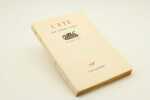
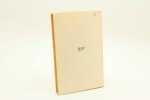
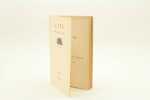









![Camus et l'Algérie. . [Camus Albert] José Lenzini:](https://static.livre-rare-book.com/pictures/TBW/23162_1_thumb.jpg)
![Camus et l'Algérie. . [Camus Albert] José Lenzini:](https://static.livre-rare-book.com/pictures/TBW/23162_2_thumb.jpg)
![Camus et l'Algérie. . [Camus Albert] José Lenzini:](https://static.livre-rare-book.com/pictures/TBW/23162_3_thumb.jpg)




